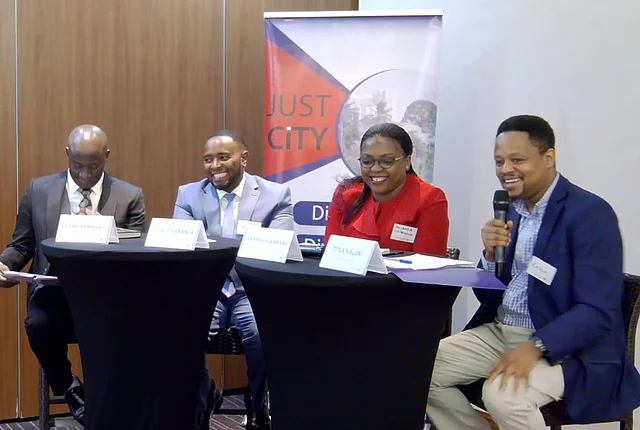- Event
- News
- Just City
Insights from the Pre-event to the First African Urban Forum 2024: Watch the Replay!
Urbanization holds the potential to transform the lives of millions across Africa by improving access to essential public services, transportation, housing, and employment opportunities. However, these benefits are not automatic. The success of urbanization hinges on thoughtful investments in infrastructure—whether by the State, private sector, or civil society—and on well-planned, responsive urban development. Many citizens are left behind without a just approach, as prevailing injustices often prevent the equitable distribution of urbanization’s rewards.
From September 4-6, 2024, the African Union hosted the inaugural African Urban Forum (AUF) in Addis Ababa, Ethiopia, under the theme “Sustainable Urbanization for Africa’s Transformation: Agenda 2063.” Leading up to the main event, Friedrich-Ebert-Stiftung (FES) organized a pre-event on September 3rd titled “The Just City in Africa: Democracy, Social Justice, and Sustainability.” This event brought together experts, policymakers, and civil society leaders to discuss the concept of the Just City and explore ways to ensure that urban development promotes democracy, social justice, and sustainability.
Below, you can find recordings from the four-panel discussions held during the pre-event:
Panel 1: The East Africa Synopsis – What is at Stake? Current Trends in Urbanizing Africa
This panel featured experts Francis Kibirige (Afrobarometer), Hatchile (Uganda), and Geraldine Kabami (FES Uganda). The discussion centered on the current urbanization trends in Africa, tackling key questions such as:
- What drives the rapid urbanization in Africa?
- Are cities ready for the influx of new residents?
- How are urban centers financed, and how do people express their frustrations with urban challenges?
Panel 2: The City of Tomorrow is a Just City – Perspectives on Just Cities in Africa
Moderated by Titus Kaloki (FES Kenya), this panel included perspectives from Francis Kibirige (Afrobarometer), Gitau Thabanja (Nakuru City Manager), and Amanda Ngabirano (Paratransit Consultative Forum, Uganda). Key questions addressed:
- What does a Just City look like?
- How can paratransit systems promote equitable urbanization?
- What steps are being taken to transform cities into Just Cities?
Panel 3: The Transformative Value of Urbanization in Africa – Recognizing the Role of Informality
This discussion highlighted the importance of informality in Africa’s urban landscape, led by Florence Nyole (Architectural Association of Kenya). The panel featured Grace Chikumo-Mtonga (Civic Forum on Housing and Habitat, Zambia), Shelton Mthunzi (Bulawayo City Planning, Zimbabwe), and John Mark Mwanika (ITF/Amalgamated Transport and General Workers Union, Uganda). Topics included:
- The role of informal sectors in urban development.
- How governments can formalize informal settlements while addressing social injustice in housing and land rights.
Panel 4: Financing Urban Infrastructure and Public Goods for Just Cities in Africa
This final panel explored how to finance urban infrastructure for equitable cities. It featured Astrid Haas, Jeremmy Okonjo (Warwick Law School), and Kuria David Kamau (Nakuru’s Housing & Urban Development), moderated by Jalal Abdel-Latif (UNECA). Discussions included:
- The role of public-private partnerships in financing urban development.
- How infrastructure investments can be aligned with social justice and job creation.
Join the conversation online and follow these discussions using #AfricaUrbanForum.
